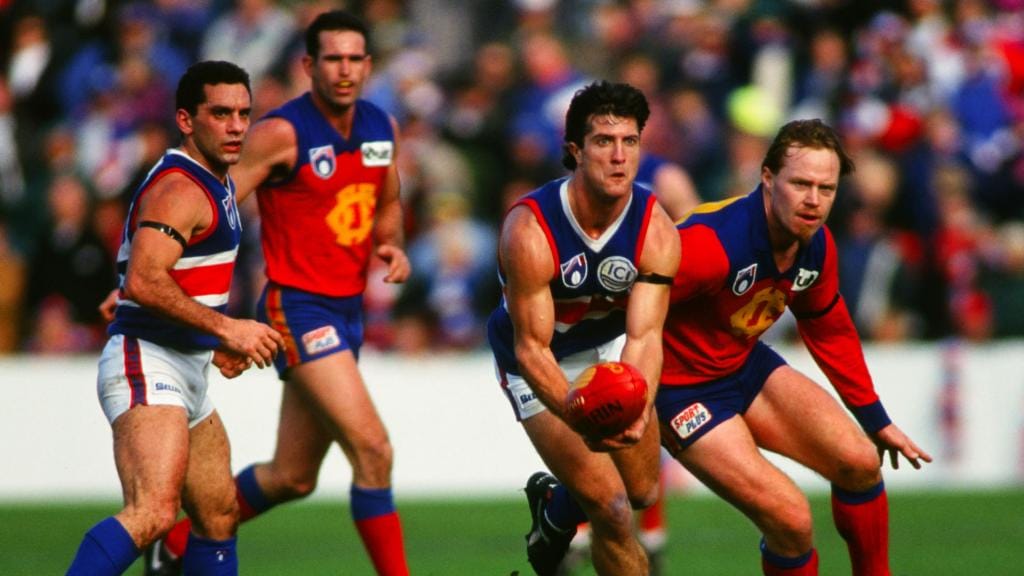
Don Pyke
A dual-premiership winner with the Eagles in 1992 and 1994, Pyke was selected with pick No.2 by West Coast in the 1988 pre-season draft and played 132 games for West Coast between 1989-1996 before a shoulder injury forced him to prematurely retire. He was also part of the Eagles side that lost the 1991 Grand Final. He played only four games in 1990 due to injury and form under new coach Mick Malthouse, but developed a harder, defensive edge to his game to become a valuable contributor to the side. Playing mostly as a tagger, Pyke shared the Eagles' best and fairest award in 1993 with Glen Jakovich. He was also runner-up to Jakovich in 1994. - Lee Gaskin
Don Pyke with the premiership cup in 1994. Picture: AFL Photos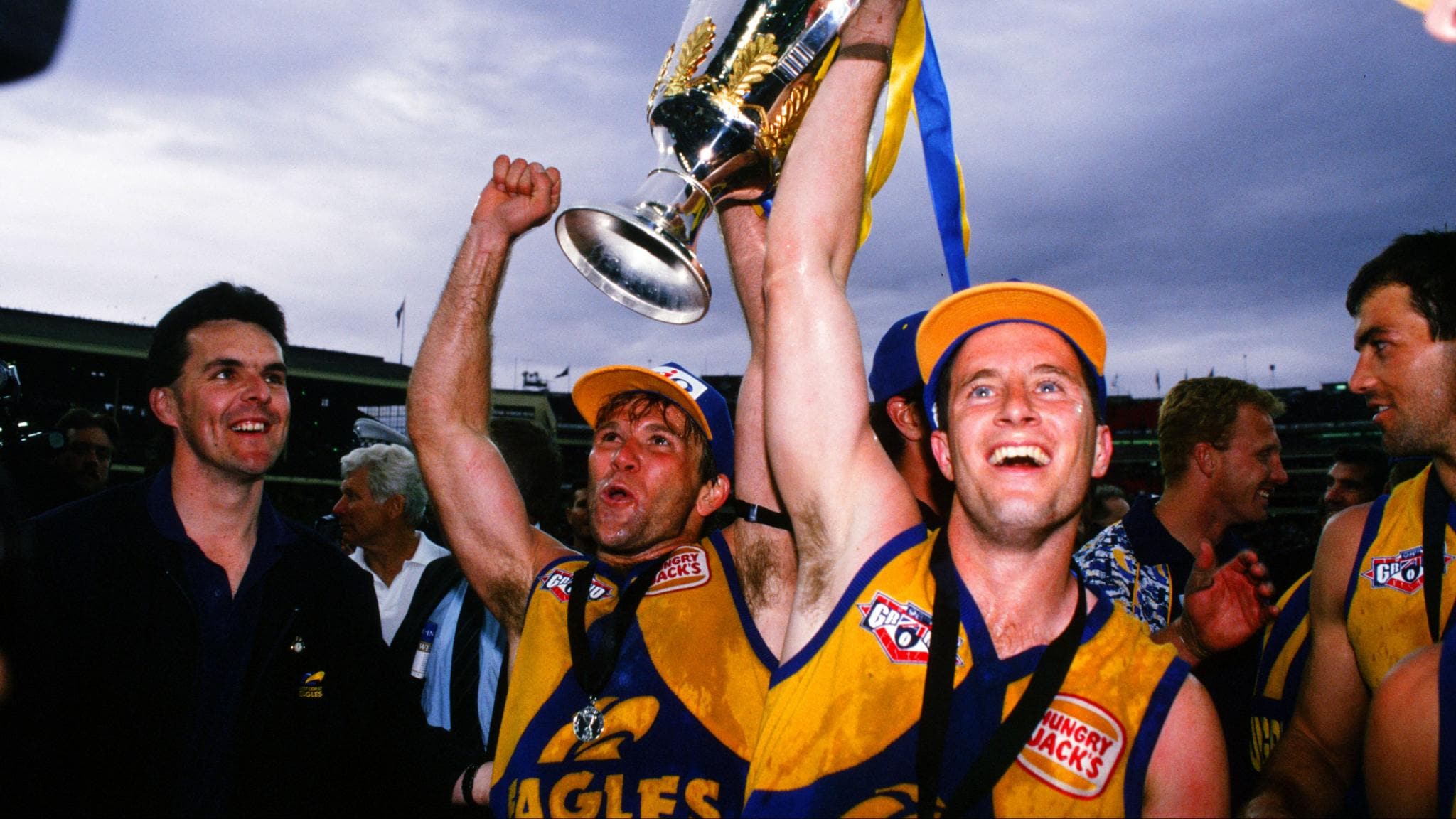

Chris Fagan
Although his playing career never brought VFL/AFL football, Fagan enjoyed an outstanding playing career in Tasmania across 263 senior games with Hobart, Sandy Bay and Devonport, booting 430 goals. That included winning premierships with Hobart in 1980 and Devonport in 1988, and best and fairest awards in 1981 (Hobart) and 1985 (Sandy Bay). Fagan also represented Tasmania 11 times at state level. - Lee Gaskin

Brendon Bolton
A skillful rover whose playing career was carved out in Tasmania, Bolton won the Darrel Baldock Medal as the best on ground in North Launceston's 1998 TFL premiership win against Clarence. He won his second premiership with Clarence in 2002 before being appointed captain-coach of North Hobart in 2003 at the age of 24. Bolton guided North Hobart to the premiership in his first season in charge, while also taking out the Horrie Gorringe Medal as the competition's best and fairest player. Bolton spent another four seasons with North Hobart before joining Clarence as a player-coach in 2008, hanging up the boots at the end of the year. - Lee Gaskin

Nathan Buckley
Buckley was recruited by the Brisbane Bears through their Northern Territory zone in 1992. It was a dodgy saga from start to finish. In 1991 North Melbourne illegally signed the promising Port Adelaide Magpies (SANFL) reserves player and, to bypass the draft, then convinced the Bears to list Buckley as a Northern Territory pre-draft priority zone selection in an arrangement that also breached AFL rules but somehow received League approval. North brokered another illegal agreement with Brisbane that would allow them to claim Buckley at the end of 1992. But in the intervening 12 months, Buckley won the Magarey Medal and was best-afield in the SANFL Grand Final, and the secret deals fell apart when Collingwood seduced the youngster. The Bears forced Buckley to spend the 1993 season with them and he finished second in the best and fairest and won the AFL Rising Star award. At season's end there was a frenzy for Buckley's services and he got his wish to join Collingwood (which had also broken the rules) where he became one of the club's greatest players. - Ben Collins
Nathan Buckley with Roger Merrett and Robert Walls in 1993. Picture: AFL Photos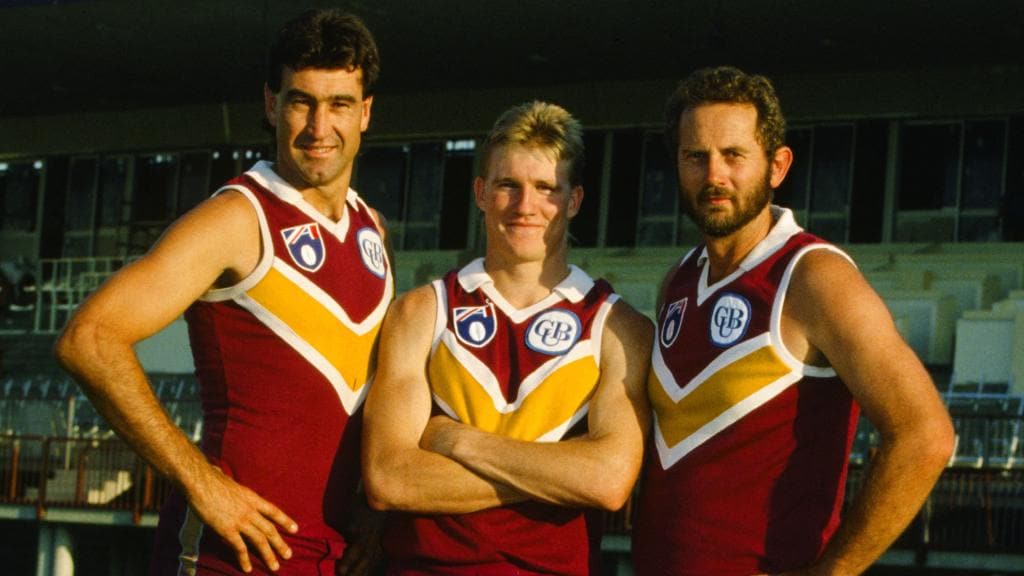

John Worsfold
At the end of 1986, 18-year-old Worsfold was perfectly positioned to benefit from West Coast's entry to the AFL. A member of the Western Australian under-17 team that won the state's first Teal Cup the previous year, Worsfold impressed in 19 games in his debut season with WAFL club South Fremantle in 1986. That October he was chosen in the Eagles' original 32-man squad. Affectionately known as 'Woosha', he became a tough defender who captained the Eagles to their first premierships in 1992 and 1994 and later coached the club to the 2006 flag. - Ben Collins

Ross Lyon
Lyon was zoned to Fitzroy, where he started in the under-19s in the mid-1980s. Originally from Reservoir in Melbourne's northern suburbs, Lyon's skill and hardness shone in the tough Preston Junior Football Association and he earned an invitation to try out with Fitzroy's under-19s. A half-forward/on-baller, he played 127 games for Fitzroy before being picked up at No.6 in the 1995 pre-season by the Brisbane Bears, where he added a further two games before succumbing to injury. - Ben Collins
Ross Lyon in action for Fitzroy in 1992. Picture: AFL Photos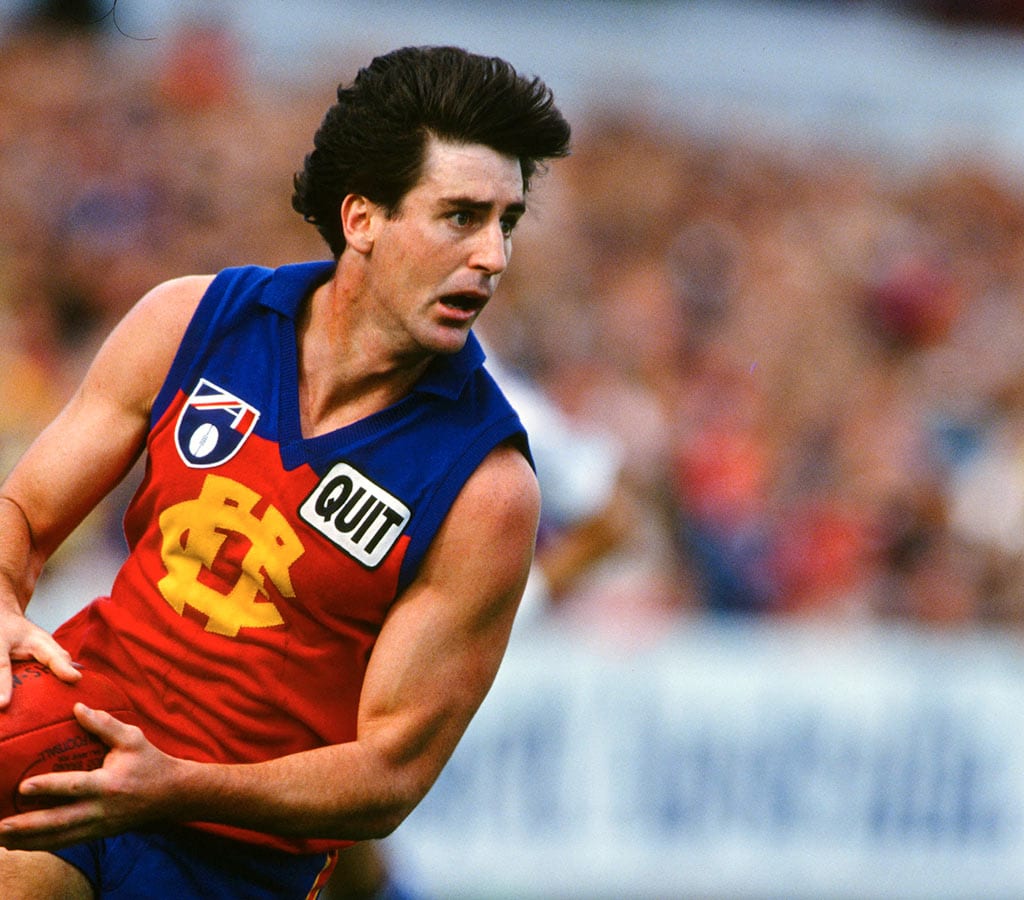

Chris Scott
Scott joined Brisbane after the mega-deal that sent Nathan Buckley and pick No.39 (Jason Wild – 70 games) to Collingwood in exchange for 1990 premiership hero Craig Starcevich, Troy Lehmann and pick No.12, which Brisbane used to snare him in 1993. The Bears also gained valuable salary-cap space that allowed them to offer Fitzroy star Alastair Lynch an unprecedented 10-year contract. Scott's presence lured his twin brother Brad away from Hawthorn and they formed a brutal defensive combination described as football's version of the Kray brothers. Chris Scott was a consistent, skilled defender who played in two premierships (missing a third through injury) and won a club best and fairest in 1998. - Ben Collins
Chris Scott gets his kick away for the Bears in 1994. Picture: AFL Photos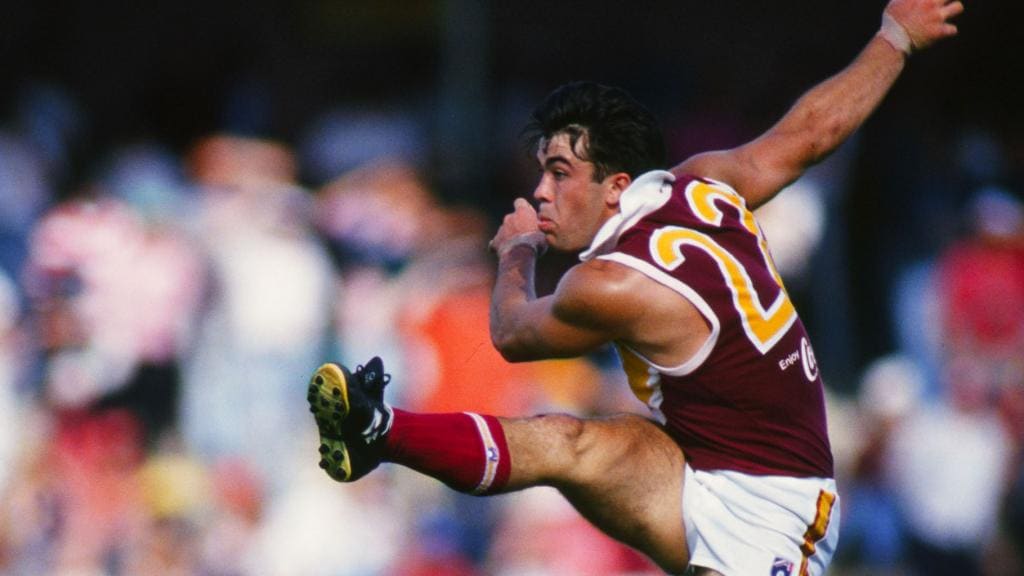

Stuart Dew
Dew was a Port Adelaide zone selection ahead of its entry into the AFL in 1997. It's fair to describe his career as colourful, and in two distinct parts. With the Power, he was a crucial player who roamed anywhere from half-forward to half-back, kicking goals from any distance with his booming left boot. He was instrumental in the breakthrough 2004 premiership, but just two years later, retired. Hawthorn took a punt on Dew with pick 45 in the 2007 draft, and did he ever repay them. Despite carrying a few extra kilos, Dew put in one of the more memorable Grand Final cameos in 2008, when he kicked two goals and set up two others in a third-quarter burst that would lead Hawthorn to an upset victory over raging favourites Geelong. - Michael Whiting

Leon Cameron
Cameron was selected pick No.7 by Footscray in the 1988 National Draft. He was one of the more gifted players of his generation, playing 256 games for Footscray and Richmond. He could play almost anywhere from a half-back role to launch counter-attacks to being a tall midfielder before his time. Cameron was a superb kick – off either foot – and could go forward and kick goals. He won a best and fairest with the Dogs and was an integral part of the Tigers' 2001 preliminary final team. - Michael Whiting
Leon Cameron in 1997. Picture: AFL Photos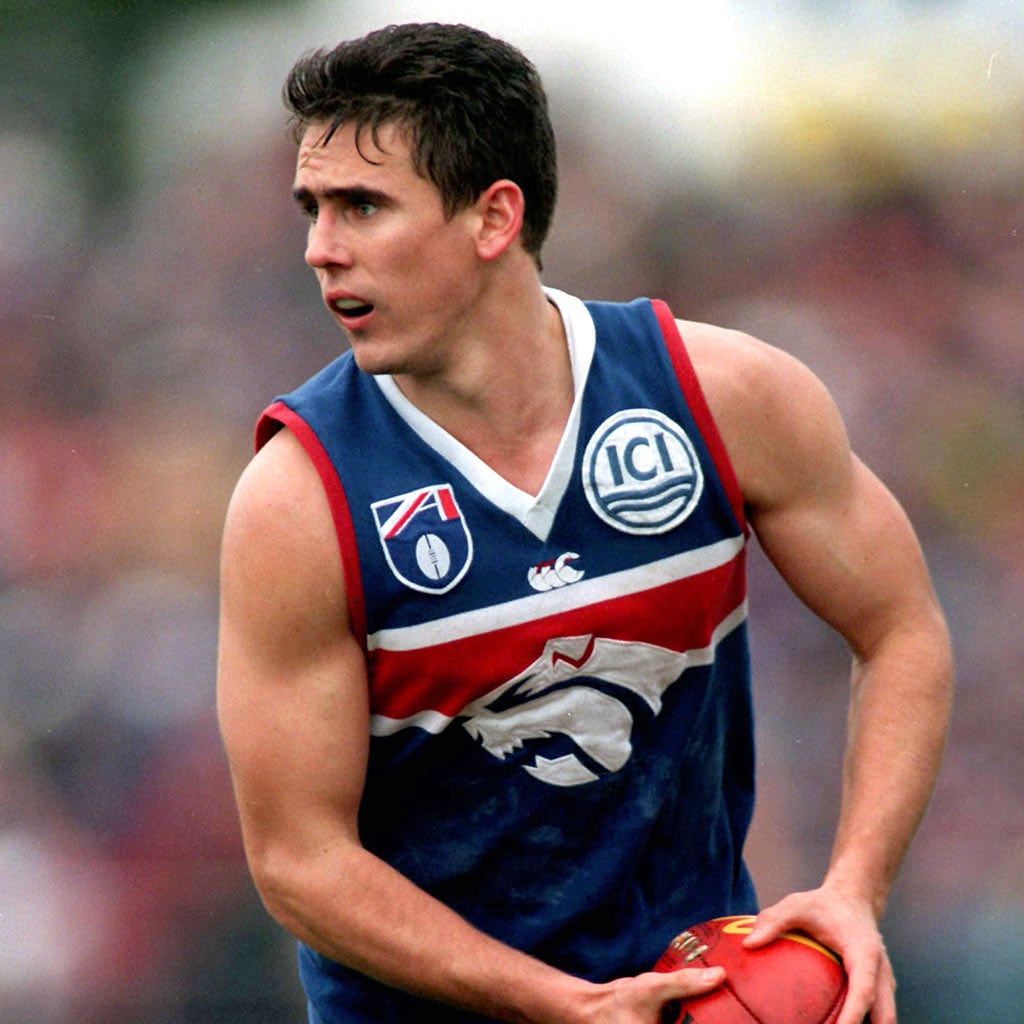

Alastair Clarkson
The supercoach is just old enough (48) to pre-date the draft and he was invited to try out as a junior with North Melbourne having attracted their attention as a student while boarding in Ballarat. He was zoned to the Kangaroos, having lived in Kaniva in western Victoria. He played eight games in 1987, his debut season with the Kangaroos although it was his role in the fiery 'Battle of Britain' game in London at the end of that season that first brought him some attention. All up, he played 93 games in nine seasons with the Kangaroos, and then 41 games in two seasons for Melbourne, after the Demons sent pick No.65 in the 1995 national draft to the Kangaroos in exchange. One of Clarkson’s best games for the Demons came in the famous 1996 'merger match' against the Hawks in the final round of 1996 when he tagged past and future Brownlow medalists John Platten and Shane Crawford. - Ashley Browne
Alastair Clarkson at North Melbourne in 1988. Picture: AFL Photos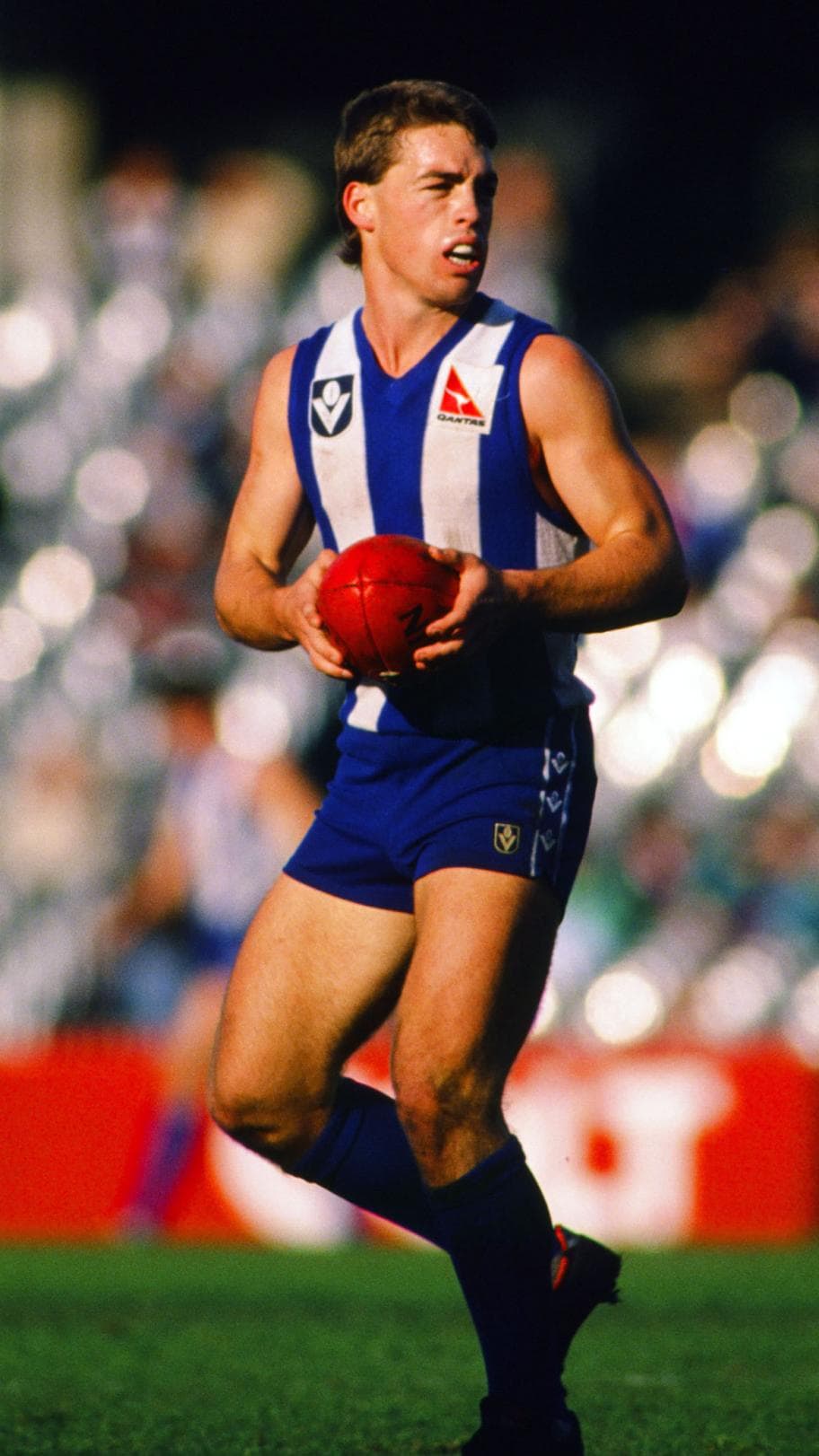

Simon Goodwin
The future Australian Football Hall of Fame member (class of 2017) was selected by the Crows with the 18th overall selection at the 1996 pre-season draft. And cricket's loss was football's gain. He co-captained the South Australian under-19 cricket team in the summer of 1995-96 as a handy fast-medium bowler and was preparing to make the summer game his sport of choice after being overlooked at the 1995 national draft. But the Crows came calling during the pre-season draft and Goodwin talks to this day of the blunt advice he received from Adelaide football manager and close family friend John Reid, to "give footy a crack because your cricket career is pretty much done, son". That he did, with 275 games, 162 goals, two flags, three club best and fairests and five All Australian selections suggesting he made the correct choice. - Ashley Browne

Brad Scott
Both he and twin brother Chris grew up as mad Hawthorn supporters, so he was thrilled to be selected by the Hawks with pick No.60 at the 1994 National Draft. It was a fine draft for the Hawks, with Daniel Harford, Ben Dixon and Jade Rawlings also making their way to the club. A bit brash and immature, it didn’t work out for Scott at Glenferrie Oval initially, and he was delisted after a couple of seasons. But he was redrafted by Hawthorn with pick No.85 in 1996 and the following year he played all 22 games, primarily across half-back. The Hawks had tried for years to bring Chris Scott back from Queensland to play for the club, but when he kept resisting, they instead traded Brad to the Lions in exchange for defender Nathan Chapman and forward John Barker. Brad played 146 games and the 2001 and 2002 premierships for Brisbane and has been coach of North Melbourne since 2010. - Ashley Browne

Ken Hinkley
A star goalkicker for Camperdown in the Hampden Football League as a teenager, Hinkley went to Fitzroy for the 1987 season as a zone selection after having rebuffed an offer from the club two years prior. However, the city life wasn't for him. He spent two seasons as a forward at the Lions before seeking a clearance so he could move to Geelong. The more sedate lifestyle suited him and Hinkley thrived, winning a best and fairest in 1992 and being awarded with All Australian selection in 1991 and 1992. – Dinny Navaratnam

Damien Hardwick
Hardwick spent time at North Melbourne's reserves side and Springvale in the Victorian Football Association before he was picked up. In 1992, he slipped through to No.87 in the draft. Hardwick won Essendon's reserves best and fairest in 1993 before eventually making his debut the following year. The tough defender would become a key part of the Bombers' 2000 premiership, which is considered among the greatest teams ever. At the end of 2001, he was traded to Port Adelaide for No.31 and 47 in the draft and repaid the faith, helping the Power win their first flag in 2004. – Dinny Navaratnam
Damien Hardwick gets busy for the Bombers in 2000. Picture: AFL Photos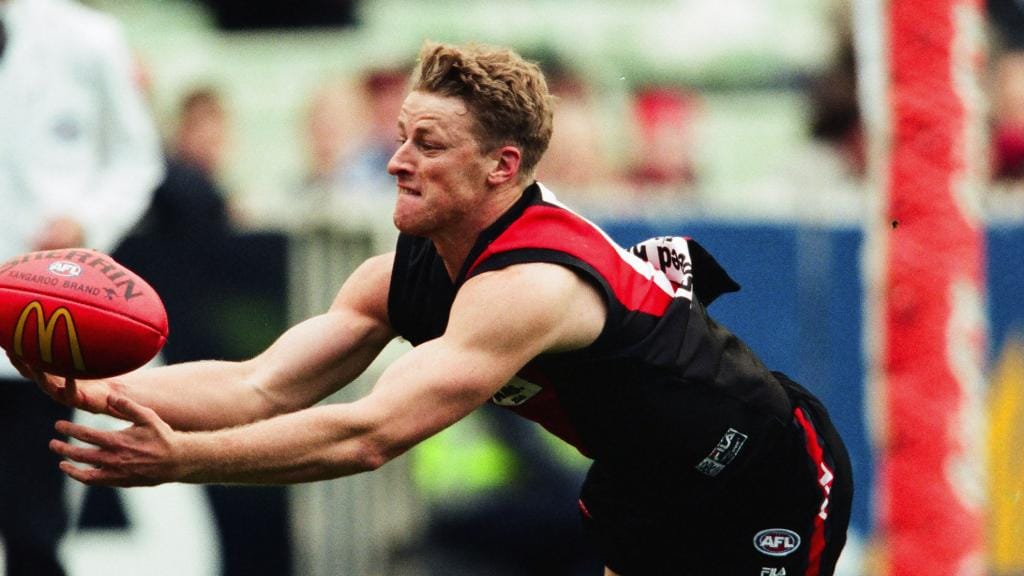

Alan Richardson
Richardson started with the North Melbourne reserves but they shunned him. Soon enough, he was recruited by the Magpies in 1986 at the recommendation of his East Burwood coach Barry Price. Richardson put together an honest career spanning 114 games as a hard-nosed defender. Was desperately unlucky to miss out on the drought-breaking 1990 premiership, when Collingwood coach Leigh Matthews put him through a fitness test after the Magpie had suffered a broken collarbone. It was all going to plan, until Matthews steamrolled the backman to see if Richardson had healed sufficiently. He hadn't, and the current Saints coach missed out on the Pies' triumphant Grand Final. – Dinny Navaratnam

John Longmire
In what has to be one of the most astute trades in history, the Kangaroos got Longmire and Wayne Carey, also from NSW, at the same time from the Swans in return for cash. What a bounty! 'Horse' debuted with four goals against Footscray in 1988, but it was 1990 – as a 19-year-old – where he really made his name. Longmire kicked 12 goals against Richmond and later that season kicked 14 against Melbourne. He finished with 98 and the Coleman Medal. A knee injury ruined his 1996, but Longmire came back as a defender and played in the 1999 premiership. - Michael Whiting
John Longmire in 1990. Picture: AFL Photos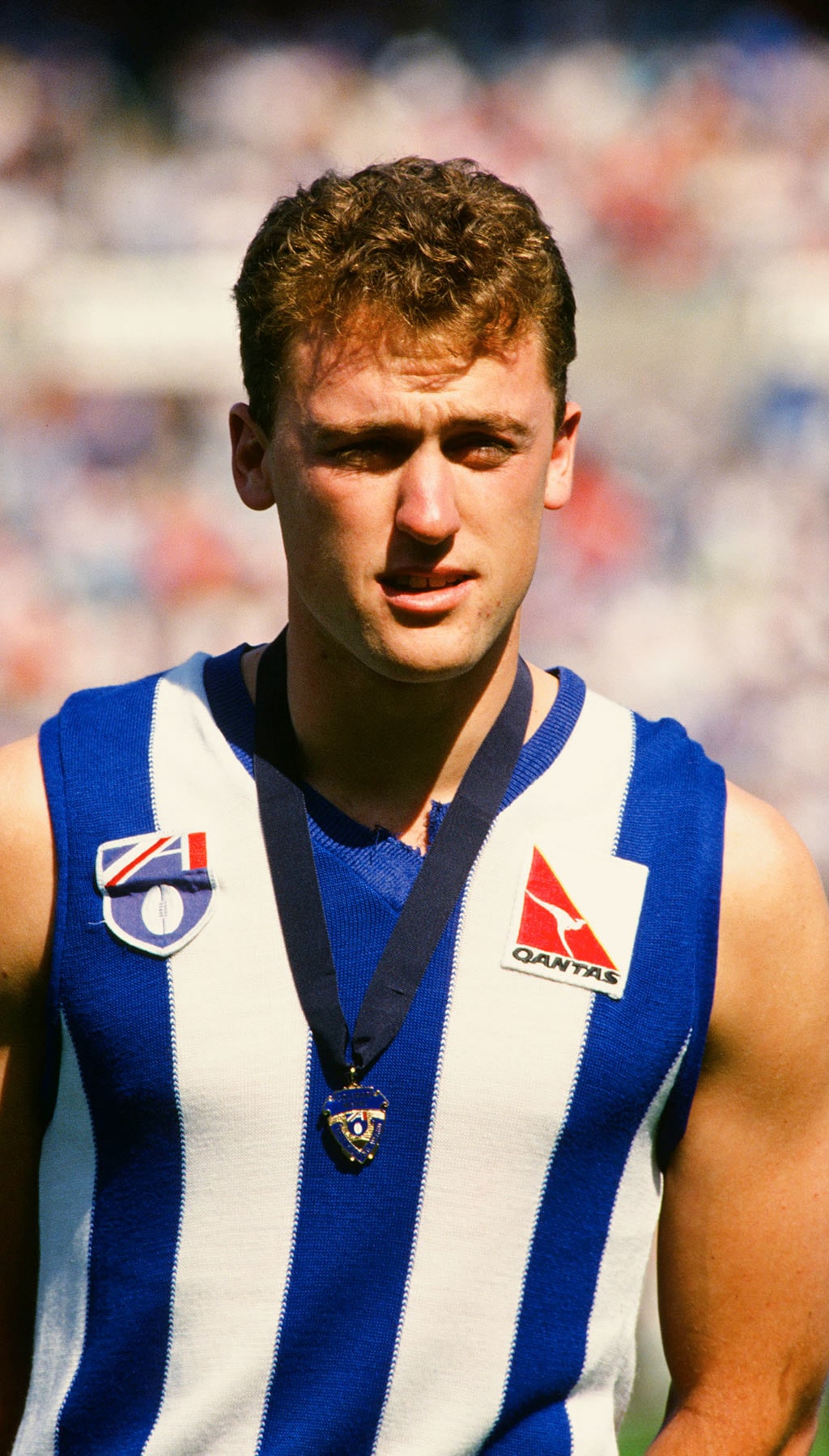

Adam Simpson
The boy from Eltham proved an astute pick at No.14 in the 1993 draft by the Kangaroos, having an almost complete career. A hard-running midfielder, Simpson had to bide his time before making a debut in 1995, but once he earned his spot, rarely relinquished it, playing 306 games in all before retiring at the end of 2009. Two premierships, five years as a captain and a best and fairest and All Australian selection in a super 2002 season. A player that combined great skill with getting the most out of himself. - Michael Whiting

Luke Beveridge
Beveridge came through Melbourne's under-19s (zone) before playing seniors in 1989. Just like his no-nonsense coaching style, he was a no-frills scrapper as a player. He landed at three clubs – Melbourne, Footscray and St Kilda – but never really nailed down a permanent home at any. He won the Demons' best first year player award in 1989, but was traded to the Dogs three years later. There he played 31 games in three years before chalking up another 45 in four years with the Saints. - Michael Whiting
Luke Beveridge in action for the Dogs in 1995. Picture: AFL Photos